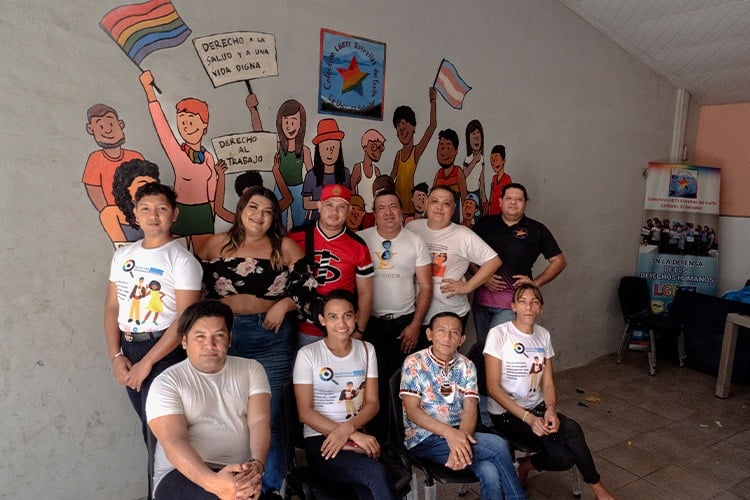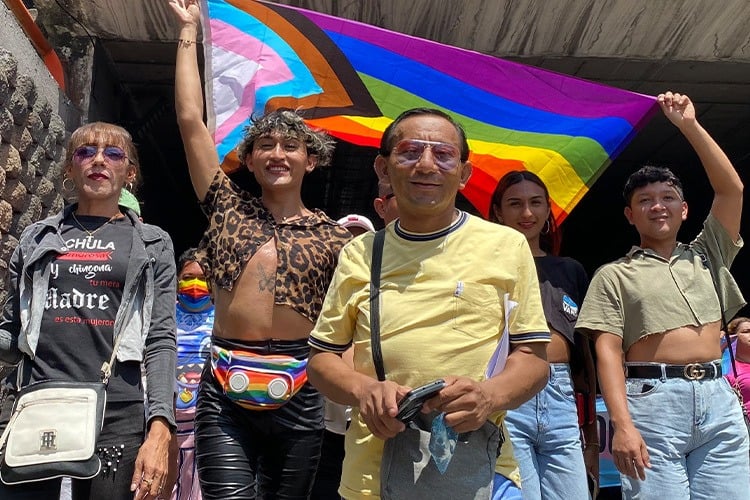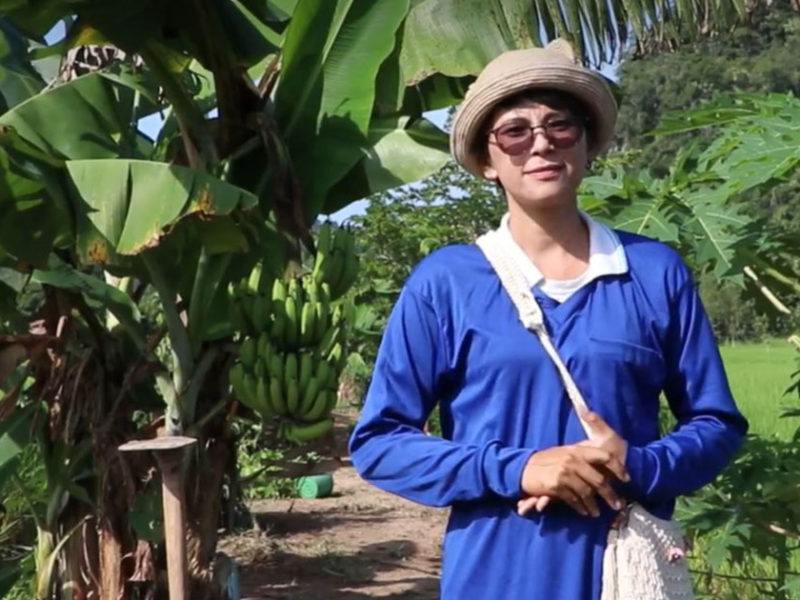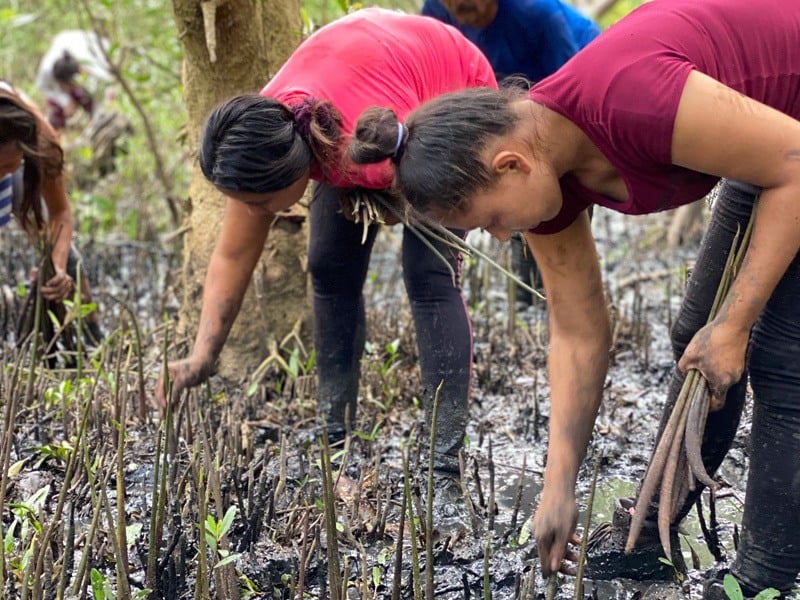Karla Guevara has seen major progress for LGBTQI+ rights in her lifetime. Fifteen years ago, when the Salvadoran trans activist founded Colectivo Alejandría, LGBTQI+ rights organizations like hers were denied legal standing and recognition. Within a decade, however, not only did her organization gain legal status, but other groups like hers had fought for and managed to succeed in passing dozens of laws forbidding discrimination based on sexual orientation and gender. The government even dedicated agencies and staff to measure and tackle hate crimes; and groups advocating for the rights of women, Indigenous people, LGBTQI+ and other marginalized communities were consulted in reshaping the country’s constitution.

“We helped to pass some really interesting policies and gathered important data about how to reduce hate crimes” during this period, shared Karla.
Now, however, everything has changed. El Salvador’s conservative President Nayib Bukele has rolled back much of this hard-won progress—and put the lives of countless Salvadoran people in danger. He dismantled the government agencies once tasked with taking on hate crimes and banned the dissemination of materials that raise awareness about HIV and other sexually transmitted diseases as well as education programs (including a popular TV series for teens about gender identity and sexual orientation).
Bukele and his administration have even cracked down on anyone who speaks out against them. Like the “don’t say gay” movement in the United States, nonprofits, activists and everyday citizens have had to become very careful about what they say, for fear of reprisal. Bukele’s “State of Exception” policy, in which tens of thousands of Salvadorans have been imprisoned to contain gang violence, is being used as an excuse to jail activists fighting for equality. Over 80,000 Salvadorans have been detained, with nearly half having no involvement in criminal activities.
“El Salvador is being billed as a much safer country,” shares Karla. “But we [the LGBTQI+ community] are more afraid today.”
Lack of education and care with nowhere to go
The crackdown on any talk of gender identity and sexual orientation plus the license from those in power to discriminate, have had devastating effects. Without the ability to tailor care based on identity—for example, HIV screenings for gay men and transgender women—more and more patients are having their diagnoses missed or not getting the life-saving treatment they need.
“People are no longer going to the doctor or hospital because they receive discriminatory treatment,” said Gonzalo Montano, training director with AJWS partner AMATE.
Furthermore, President Bukele and his administration have systematically removed all sexual education from schools, including any mention of LGBTQI+ identities. There is growing fear that more and more LGBTQI+ youth will drop out of school in this hostile atmosphere (transgender students aren’t allowed to be their true selves through their dress or pronouns) and that teen pregnancy rates will spike.
The difficulties are myriad, and manifest each and every day. Due to hiring discrimination, many LGBTQI+ Salvadorans lack sufficient income to afford enough to eat. Discrimination in housing is also rampant, with landlords often denying rentals to this community. Due to the country’s conservative Catholic and growing Evangelical culture, families often kick LGBTQI+ youth out of their homes. They truly have nowhere to turn without the support of nonprofit organizations.
From the cities to the villages, a movement of resistance is building
In every corner of the country, LGBTQI+ rights activists and organizations are working day and night to ensure that their communities are not left behind. With funding from AJWS, Colectivo Alejandría has opened a community center in San Salvador offering physical and mental health care, legal aid and more.

Hundreds of miles away, in a remote departamento near the Honduras border, AJWS grantee Estrellas del Golfo has been able to raise awareness about LGBTQI+ rights and create extremely successful partnership with local and regional governments to ensure that the needs of their communities are met. Ever Pacheco, the organization’s founder and executive director since 2010, remains resolute.
“We don’t want our community to feel intimidated,” they said. “What’s going on is frightening, but we continue our work from the trenches.”
Security has become more challenging and even more important, with citizens emboldened to report LGBTQI+ rights activists to the authorities, and ever-present fear of government surveillance. The vast majority of LGBTQI+ rights groups supported by AJWS are working to keep activists, organizations and the communities they support safe, by providing physical security, emergency shelters, education about digital safety, and more.
The most effective tool that AJWS partners are deploying to stem the tide of homophobia and transphobia has proven to be teamwork. From the local to the national, LGBTQI+ groups are coming together to learn from each other, share solidarity and help each other.
In a nation where the life expectancy for transgender people is an astonishing 35 years, the fight for LGBTQI+ rights is not only about dignity and respect – it’s about saving lives. “I want to change El Salvador,” Guevara said. “I want to create a world where we can live without this fear, perhaps not for me, but for the next generation.”




